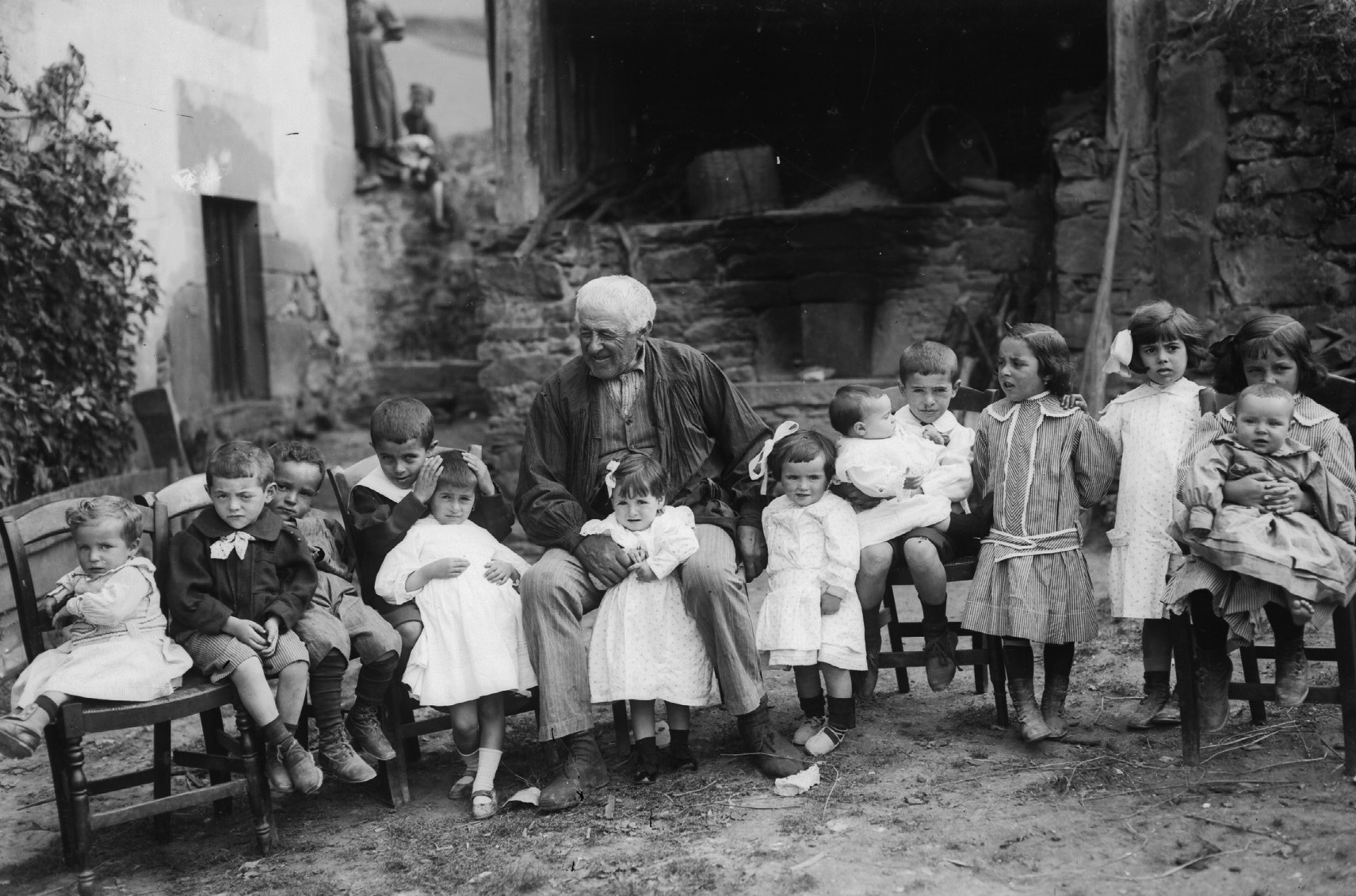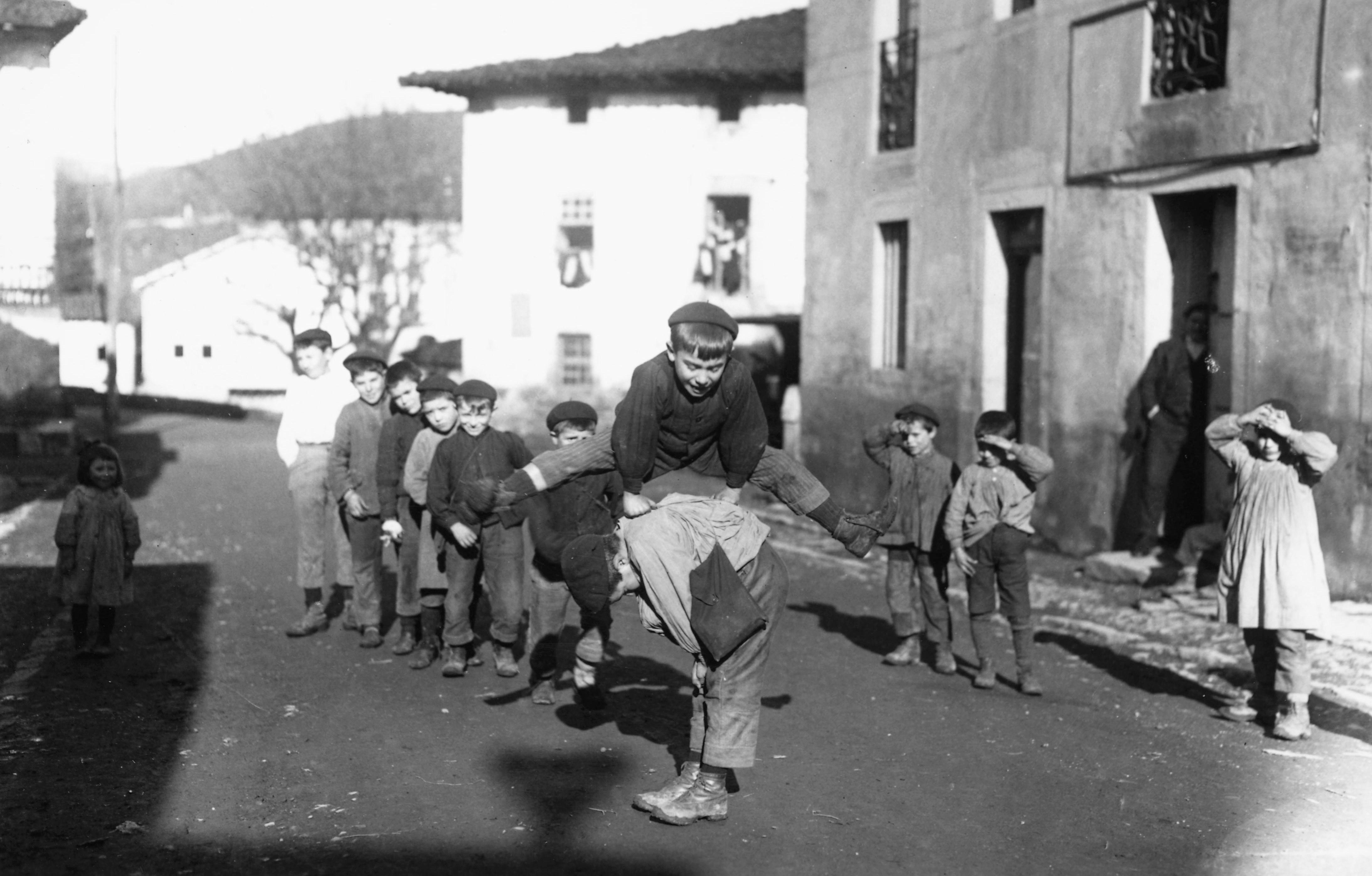
With the grandchildren. Zeanuri (Bizkaia), c. 1910. Felipe Manterola Collection. Labayru Fundazioa Photographic Archive.
During our years of experience writing the Ethnographic Atlas of the Basque Country, we have learned about the many changes that occurred in the 1960s and 1970s which meant a clean break with the past.
Those, let us recall, were decades of enormous tension and rising social movements in the international arena. This past spring we commemorated the 50th anniversary of May 1968 protests by workers, intellectuals, students… initiated across France and echoed around the world. The said events entailed wide repercussions, some of them quite painful, in Mexico (Tlatelolco), Praga, China (Cultural Revolution), California (Berkeley)… Within the Church the implementation of the Second Vatican Council (1965–1975) made a decisive impact on the spiritual attitude of the faithful, the growth of secularization and a decrease in religious vocations resulting from it.
Finally bringing to an end the days of economic autarky, Spain agreed a stabilization plan and joined the UN. The tourist industry was born, and motor vehicle production and consumption gained momentum. As regards social development, secondary school students tripled in number, professional training schools emerged…, which provided a brighter future to the youth. There were many other consequences, such as the further intensification of the motor and automotive industry, the dynamic modification of the world of radio, the spread of transistor radios, and the introduction of television.

Asto-astoka ‘leapfrog’. Zeanuri (Bizkaia), c. 1920. Felipe Manterola Collection. Labayru Fundazioa Photographic Archive.
Out of the ethnographic findings detailed in the abovementioned work, here are some of the marked transformations observed. Food habits changed as a result of wheat being no longer grown and self-sufficiency in our rural communities becoming a thing of the past. Something similar happened to traditional pig, cattle, sheep, and to a large extent, chicken farming, slaughtering of domestic animals almost disappearing.
Home births declined, birth rates fell, and two or one-generation households became more common than families with three generations living under the same roof. Christenings, masses and funeral rites underwent radical changes. Collective activities were replaced with increasing individualism. Knowledge of folk medicine beliefs and practices was lost, and the use of medication widened. Small-scale farmers turned to intensive farming. Automated machinery reduced drastically the need for human and animal labour in the fields, which led to rapid and massive agricultural mechanization.
Segundo Oar-Arteta – Etniker Bizkaia – Etniker Euskalerria Groups
Translated by Jaione Bilbao – Ethnography Department – Labayru Fundazioa
The eight volumes of the Ethnographic Atlas of the Basque Country collection may be consulted for further information.